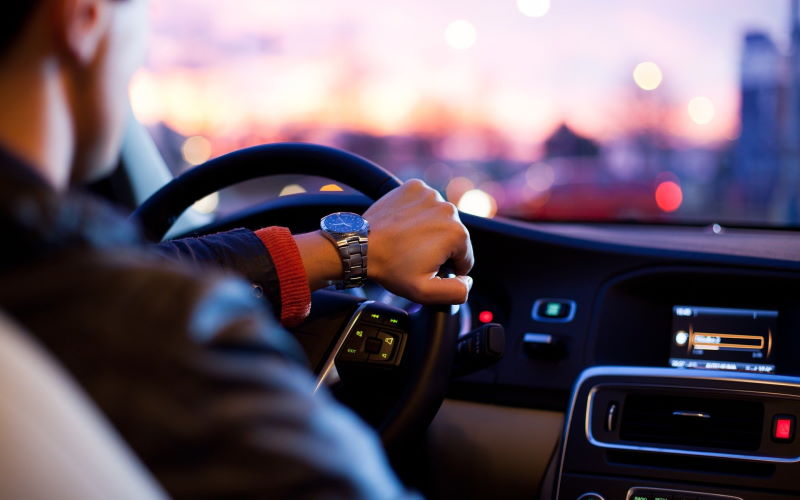3 Ways Dash Cams Can Help in an Automobile Legal Battle

No one ever wants to be involved in an automobile legal battle, but unfortunately, accidents do happen and the best we can do is try to be as prepared for them as we can. In this case, having a dash cam can be fundamental in proving your innocence if you find yourself in a court trial following an incident on the road.
An in-car camera is a small camera that is mounted either onto the dashboard or windscreen of your car, using the 12v cigarette lighter for power or is hardwired into your car’s power supply. These in-car cameras use micro-SD memory cards to record their footage and, thanks to their ‘loop recording’ technique, the camera will never run out of memory, as it is designed to rewrite the oldest footage once the memory card is full.
The hardwired cameras usually begin filming once you turn on the ignition of your car and will record HD quality footage of your surroundings. It is important to ensure that your dash cam is installed correctly because if it comes out that your in-car camera has obstructed your view in any way or has been the potential cause of an accident, you could be held liable. Additionally, if your dash cam isn’t fitted properly, you could potentially be breaking the law and any footage would be disregarded by your insurance company and by the police.
However, most of the time having a dash cam is incredibly useful in the case of an accident and can be crucial in an automobile legal battle. Here are the three most important ways that they can help.
1. They Can Provide Vital Visual Evidence
Dash cam footage can legally be provided as evidence in a United Kingdom court case. This footage can provide valuable information in a case that would otherwise have been left to testimony and conjecture. With clear footage from an in-car camera, it can be proven sometimes irrefutably which party was at fault and there is no need to rely on independent witnesses. It also removes cases of one person’s word against another’s but without any evidence to back up either claim. Dash cam technology has improved drastically in recent years and most in-car cameras can now provide HD footage and many even film in 4K Ultra HD. There are also models that have outstanding night vision and extreme weather features that will ensure that number plates and road signs will almost always be visible when looking back at the footage. Many cameras also have a slow-motion option, allowing for the footage to be viewed at a much slower rate in case any vital details were missed while watching at normal speed.
2. They Also Provide Non-Visual Evidence
Many of the latest dash cams have key features that would be advantageous in providing proof in court, aside from the recorded visual footage. Several of these camera models utilise multiple satellites and have built-in GPS systems that are capable of capturing the car’s location at all times. This adds an extra dimension to the potentially inconclusive video footage that may have been captured of an incident and can provide detailed proof of the exact route that a vehicle took before the incident, as well as the precise location of where the incident took place. Many dash cams also have a feature that captures the car’s exact speed, which could be incredibly useful if the camera’s video footage does not have enough clear information on which party was at fault.
3. They Can Provide Key Witnesses
Dash cam footage can be sent to the police in a number of ways, either via a link on the force’s website or via the National Dash Cam Safety Portal. This portal is free to residents of the UK and can only be accessed by the police. This handy system has given the public a hassle-free way to report any incidents that they may have witnessed and unintentionally captured on their dash cam. These individuals may not have been directly involved in the incident but noticed later that their in-car camera had captured a number plate or a key individual that was involved. The portal is user-friendly and all that needs to be provided at first is the relevant footage and an accompanying statement. However, all footage that is uploaded to the Safety Portal, is considered part of an official police report and the person who uploaded it can potentially be called up as a witness in court. Their testimony could be key evidence in proving who was at fault in an ongoing automobile legal battle. It is important for anyone who may think they have footage like this to understand that the incident needs to be reported within 14 days of its occurrence as this is the window of time in which the driver of the offending vehicle must be given a Notice of Intended Prosecution (NIP).
Dash cams can provide a vital second pair of eyes on the road when driving and can be essential when the worst happens, and you find yourself needing to prove that your actions were not the cause of an accident. There are many reckless and irresponsible drivers on the road, along with those who are aiming to commit theft or even insurance fraud. It’s more beneficial to be prepared before the fact rather than find yourself in court with nothing to back yourself up except your word against someone else’s.

